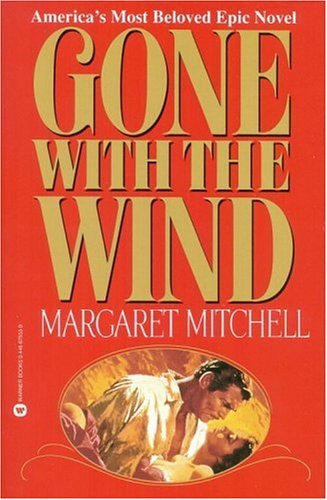Title: Epic Romance and the Unraveling South: "Gone with the Wind" by Margaret Mitchell
Margaret Mitchell's "Gone with the Wind" is an epic tale of love, survival, and the sweeping changes brought by the American Civil War and Reconstruction era. Published in 1936, this Pulitzer Prize-winning novel immerses readers in the complex world of the Southern United States, offering a vivid portrayal of the Old South's demise and the resilience of its people.
At the novel's core is Scarlett O'Hara, a headstrong and compelling protagonist whose journey unfolds against the backdrop of war and societal upheaval. Mitchell's character development is masterful, and Scarlett's evolution from a pampered Southern belle to a determined survivor showcases the author's nuanced understanding of human nature.
The rich historical tapestry of "Gone with the Wind" captures the zeitgeist of the antebellum South and its subsequent transformation. Mitchell skillfully depicts the impact of war on both the societal structures and individual lives, portraying a region grappling with the harsh realities of defeat and reconstruction. The novel offers a nuanced exploration of race, class, and gender roles, providing readers with a window into the complexities of Southern society.
The romantic entanglements in the novel, particularly Scarlett's tumultuous relationships with Ashley Wilkes and Rhett Butler, contribute to its enduring appeal. The dynamics between these characters are both passionate and tragic, adding layers of emotional complexity to the narrative. Rhett Butler, with his roguish charm and complexity, remains one of literature's most enigmatic figures.
Mitchell's descriptive prose paints a vivid picture of the Southern landscape, from the genteel plantations to the war-torn fields. The novel's evocative language and detailed depictions create an immersive reading experience, transporting readers to a bygone era with all its grandeur and upheaval.
However, "Gone with the Wind" is not without its criticisms. The novel has faced scrutiny for its portrayal of race and its romanticized view of the antebellum South. Some argue that the narrative perpetuates certain stereotypes and fails to fully confront the darker aspects of Southern history.
In conclusion, "Gone with the Wind" is a sweeping and ambitious novel that captures the spirit of a bygone era. Margaret Mitchell's storytelling prowess and vivid characters make it a classic in American literature. While it faces scrutiny for its handling of certain themes, the novel's enduring popularity is a testament to its ability to resonate with readers and offer a window into a tumultuous period of American history.

Comments
Post a Comment